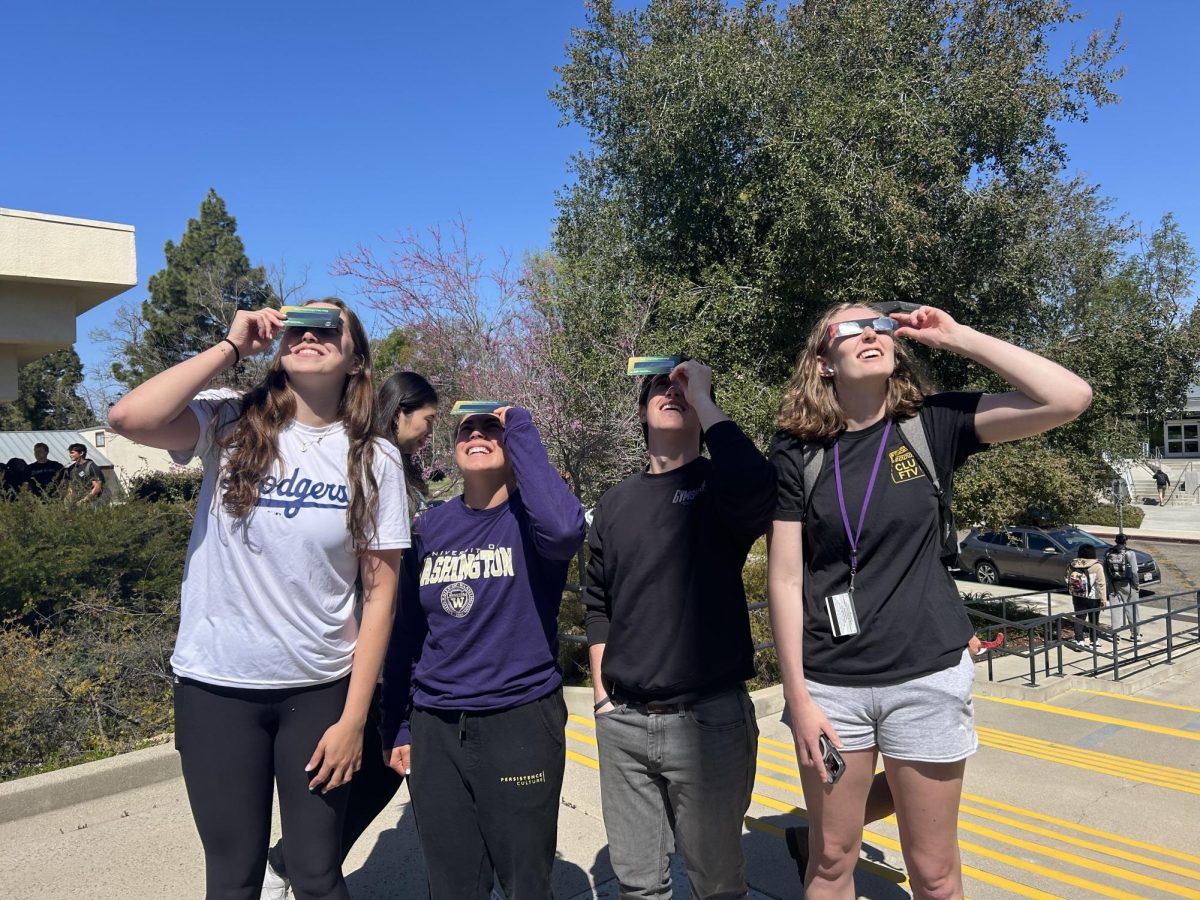In last week’s student government Senate elections, two individuals were disqualified for not turning in their spending packets that show how much they used of their allotted $200 campaign finances by 5 p.m. on Thursday, April 11.
Even though they would have won, both disqualified candidates ultimately chose not to appeal – transfer senator candidate Sulieman Hawatmeh was the only one running for the position, and sophomore senator candidate Kelsey Gomez was in the top four.
In this election cycle, 15 positions were up for Senate: four sophomore, four junior, four senior, one transfer, one commuter and one international representative seat. No one ran for the international representative position, and the commuter seat was filled by a write-in. In addition, junior senator candidate Eliana Goncuian did not accept her seat.
Disqualifying candidates even when they’re running unopposed is not new for the Associated Students of California Lutheran University Government. Last year, two people running for executive cabinet, one of whom was unopposed, were disqualified for posters being up past 5 p.m. on the last election day, and another senate candidate was disqualified last fall for not turning in her spending packet.
The elections packet each candidate must sign states that if a spending review packet is not turned in by 5 p.m. the last day of the election cycle, the individual is automatically disqualified.
ASCLU President Alexis Ghattas, who stepped up to the position last month because former President Nick Steinwender was removed from office, said that although changing this policy was discussed, the elections committee ultimately decided to keep it as a measure of candidates’ ability to be on student government.
“We talked about it…basically our reasoning was that it kind of allows us to see how they keep up with deadlines,” Ghattas said.
Voting was open Wednesday, Apr. 10 at 8 a.m. to Thursday, Apr. 11 at 5 p.m. Results were supposed to be announced to the public that same Thursday evening, but were delayed because Gomez was initially going to appeal her disqualification.
Gomez said she withdrew her appeal because although the policy may be flawed, she had agreed by signing the elections packet.
“I advocate transparency and I advocate for if something is said in the constitution or bylaws, we have to uphold it,” Gomez said.
Gomez said she did not spend any money on her campaign and was unaware of the requirement to submit a spending review envelope, as she was not able to attend the interest meeting required for all candidates. She will remain on student government in the fall as Senate recorder, and hopes the disqualification policy will change in the future.
Incoming 2019-20 ASCLU president John Basmajian said he thinks “there definitely needs to be discussion” about the spending packet deadline, and that he would be open to considering sanctions other than immediate disqualification.
“I would rather have someone that can meet the rules,” Ghattas said. “While it is kind of harsh, being a senator is not easy.”
ELECTION RESULTS:
It is unknown how many people voted in the Senate election, although only the sophomore senator category was a contested race.
The elections committee also decided to release the percentage of votes each candidate earned this voting cycle, not including those who lost. Despite an ongoing push from The Echo for these numbers in recent years, they were not released in the executive cabinet elections last month because it might “discourage” people from running or “be embarrassing” for those who didn’t win, Ghattas said.
“We’re not perfect – we’re all students as well. We realize we may have made a mistake when we chose not to release results,” Ghattas said.
Ghattas said they were released this election cycle in response to a push for transparency from the student body, but the percents for those who lost or were disqualified were left off.
“We want to be transparent, but we also want to respect the people who didn’t win,” Ghattas said. “It can be really embarrassing and we don’t want to discourage them.”
These are the incoming 2019-20 representatives. Numbers are based on percentage of total votes cast, not reflecting that students are not required to vote for each category:
Senior Senators: Bridget DeMaria (60%), Kaitlyn Loughlin (42%), Maria Reyes (42%), Christopher Soto (42%)
Junior Senators:Garrett Wyatt (60%), Karyme Lara Chagoya (56%), Tessa Touchstone (43%)
Sophomore Senators: Josyua Gatison (40%), Mariah Zermeno (36%), Samantha Hostetter (31%), David Bryant (28%)
Commuter Senator: Nayeli Caballero (write-in, 11 votes)
The open transfer and international representative positions and one remaining sophomore seat will be up for election in the fall, and then be open for appointment by Senate Director Kimberly Lee if they remain unfilled.
ABOUT SENATE & THE NEW REPS:
“Senators want to be a representative for a whole class. So what they do in our meetings, when they’re deciding what to vote, allocating money to clubs and working on senate projects they are being representatives for the student voice,” Lee said.
Junior Kaitlyn Loughlin, who is a double major in political science and criminal justice, won a senior senator seat. After having been on the Senate in her freshman year and half of her sophomore year before studying abroad, Loughlin wanted to join again because she enjoyed being part of it but also because she knows that “every person’s vote matters because that is the voice of the student body” within the student government.
“I value any idea given to me, especially if it’s something really important and students feel really passionate about, I will take it to the administrators to make sure their voice is heard. That’s the most important thing; to make sure all students have a voice,” first-year Josh Gatison said.
Gatison spent his first year at California Lutheran University serving on ASCLUG. Last semester he organized a project called “exchange for change” on campus, and this semester he is bringing new pots and pans to 11 dorm halls.
Senators are required to go to the weekly Monday meeting from 5:20-7.30 p.m., hold office hours every week and complete a Senate project either each semester or one throughout the year. Students are welcomed to attend open meetings and comment in the public section, voicing ideas or concerns.
“Recently, Cal Lu has become a Hispanic Serving Institute, but a lot of people don’t know that. I think all the diversity on campus should be reflected in the student government. Who better than myself to do that if that’s the change I want to see. If it’s supposed to be a voice for the students it should reflect the identity of students,” said junior Christopher Soto, an incoming senior senator.
Sophomore Tessa Touchstone, a political science major, said she applied to be a junior senator because she wanted to make an impact following recent issues in student government, such as former ASCLU President Nick Steinwender getting removed from office last month.
“I want to help students that come to me and their voices to be heard more. With all the events going on recently, it definitely inspired me,” Touchstone said.
Lee said she thinks the past year with the former student body president being removed from office has been a “wake-up call” to everyone, including both students and ASCLUG. She feels people now know they can go to the meetings and are learning how to be more involved. Lee also said that having six first-years run for a sophomore position shows increasing interest in student government.
“I have faith in whoever gets elected to be representative of these students and of those who cannot make it to the meetings or have the confidence to speak up. I just want to them to have the student voice to be heard at the end of the day because that’s what we’re here for,” Lee said.
Dakota Allen
Editor in Chief
Rosie Baker
Reporter






